There is something quite pathetic about the sensational confessions of a loquacious former military dictator harbouring fond, if utterly unrealistic, hopes of making a comeback in his country’s politics. Although Gen. Pervez Musharraf’s interview with Der Spiegel was full of self-serving half-truths, it nevertheless revealed the inherent shallowness of a military strongman. Peeling away his pretentions of being a statesman, the interview showed him up as a purveyor of kitsch politics. What is more, the interview reaffirmed Pakistan’s image as a rogue state. While what Musharraf said, including his mea culpa on raising terrorist groups and exporting Islamic terrorism to India, is important, equally important is what he left unsaid during the course of the interview.
The times of military coups in Pakistan are over
Yes, they are but only until another man on the horseback decides to end the charade of democracy and assume power directly rather than running the show from the sidelines. As for the judiciary, strutting about in its new found empowerment and ‘independence’, setting ‘a bar on itself to not validate a military takeover’, this is something that will only be known when the next coup takes place. Among the first things that a coup-maker does on usurping power is disband the sitting judiciary and pack the benches with pliant judges who then ‘validate’ the coup. This is standard operating procedure in Pakistan. Far from the current judges not validating a coup, they appear hell bent on inviting one, albeit under the ridiculous pretence of protecting the rule of law by the dubious invocation of article 190 of the constitution which calls upon all executive and judicial authorities to aid the Supreme Court! This is akin to what Ghulam Mohammed and Iskandar Mirza did in the 1950s when they invited the military to intervene in the politics of the country.
The non-performance of the government is the issue
Sure it is an issue, but who is to decide this issue – the courts or the people? Successive civilian governments in Pakistan have been dismissed or overthrown on precisely this pretext. Of course, since non-performance alone doesn’t sound very convincing, the charges of corruption and in some cases, anti-state activities (security risk) are added to make the putsch more saleable. The Musharraf regime’s performance, when measured against the seven point programme he laid out after overthrowing Nawaz Sharif’s government in 1999, was, to say the least, dismal. The mess that he left behind is one of the major factors for the poor performance of the current government.
We have a culture of vendetta and vindictiveness in Pakistan
And Musharraf epitomises this culture. His hatred for Benazir Bhutto was born out of the disciplinary action that Benazir’s father, Zulfikar Ali Bhutto, had taken against his father who was found involved in some dodgy transactions while posted in a diplomatic mission in Indonesia. While Musharraf did not follow Gen. Ziaul Haq path by sending Nawaz Sharif to the gallows, he ensured that Nawaz Sharif was put away in prison for 25 years. During the time Nawaz Sharif was in prison, he was humiliated and treated like a common criminal. After Nawaz Sharif was sent to exile, Musharraf refused to let him return even for his father’s burial. Musharraf’s cronies tortured Nawaz Sharif’s associates to get them to implicate Nawaz Sharif in more cases. The treatment meted out to Gen. Ziauddin Butt, the man who replaced Musharraf as army chief for a few hours – properties seized, pension annulled, and thrown into solitary confinement for two years – is probably Musharraf’s definition of humaneness. The murder of Nawab Akbar Bugti by Musharraf’s hit-men from the Pakistan army was also borne out of his ego clash with the Baloch sardars.
The West blames Pakistan for everything
This is typical of the denial that pervades the Pakistani psyche of the wrongs committed by them. Worse, it displays the rather puerile mindset that has become the hallmark of the Pakistani establishment, especially when it comes to India. What can be more infantile than a former head of state, even though a illegitimate military dictator, to indulge in silly rhetoric of the sort that Musharraf does when he says “nobody asks the Indian Prime Minister.....”. Well, nobody asks the Indian Prime Minister because India doesn’t pose a threat to the civilized world by running a nuclear Wal-mart, exporting terrorism, and extorting handouts from the rest of the world not because of any merit but because of its nuisance value.
Pakistan is always seen as the rogue
Not without good reason. Musharraf himself admits later on in the interview that Pakistan formed terrorist groups and turned a blind eye to their depredations in India because the Pakistan government wanted India to discuss Kashmir. If use of terrorism as an instrument of state policy is not the hallmark of a rogue state, what is? This is a classic case of negotiating with another country not on the basis of logic and arguments but by pointing a gun to its head. Actually, Pakistan negotiates with two guns – one pointed at the head of its interlocutor and the other one pointed at its own head. Amazingly, Pakistan seems to be getting away with this two-gun diplomacy. First it was only India which since the days of Ayub Khan has fallen for the nonsense that it must make a gesture to Pakistan and understand the compulsions of the Pakistani regime otherwise the mad Mullahs will take over. Now even the Americans are falling for this tactic.
It is the right of any country to promote its own interests
Of course it is. But has Pakistan promoted its interests by supporting, training, funding and providing sanctuary to Islamic terror groups? Strange way of promoting national interest, especially since Musharraf himself has on a number of occasions argued that these terror groups pose an existential threat to Pakistan. Worse, the use of terrorism has effectively lost Pakistan whatever little sympathy there was among some sections of Western public opinion for Pakistan’s position on the issue of Jammu and Kashmir. There is hardly any country in the world which is now ready to back the Islamist cause in Kashmir because of the rippling effect this will have on jihadist movements worldwide. But in a sense Pakistan, which is today an international basket case, has indeed promoted its interests by ‘looking both ways’ on the issue of Islamic terrorism. Pakistan’s USP today is that it is the epicentre of Jihad Inc. and this is what bestows upon it the billions of dollars in arms and aid that keep the country afloat.
There is no such thing as a moderate Taliban
But wasn’t it Musharraf himself who advocated the cause of the moderate Taliban after 9/11? This statement of his is typical of the flip-flop-flip that Pakistanis adopt according to convenience on the issue of terrorism. Shortly after saying that there is no such thing as a moderate Taliban, the same Musharraf, in another interview, batted in favour of negotiations with moderate Taliban! And this is the man that George W Bush was ‘thick’ with.
Why, nine years after 9/11, does Pakistan remain a breeding ground for international terrorism
Simple, because Musharraf looked both ways on the issue of terrorism and the current military leadership continues to follow the Musharraf policy. Actually, Musharraf had given hints of this policy just after 9/11 when in an address to his nation to explain that he was junking the Taliban he invoked the treaties that Prophet Mohammad had signed for reasons of expediency and which were revoked as soon as the circumstances changed. The Pakistanis made a show of aligning themselves with the Americans but continued to support, sustain and sponsor their Taliban allies. Fortunately for the Pakistanis this double game was somewhat hidden by the fact that some of the Islamist groups turned their guns on Pakistan, and the subsequent actions of the Pakistan army against these renegade elements was used to convince the world that Pakistan was indeed fighting the Islamists. But the reality was quite different. And it is this continuing flirtation with the Taliban that has made Pakistan the breeding ground of international terrorism.
Mr Khan [the nuclear technician] is a characterless man
This is quite royal coming from Musharraf. Only the most gullible will buy Musharraf’s line that the Pakistan army and intelligence agencies were totally unaware of the nuclear supermarket that was being run by the rogue technician. Clearly, Khan became the fall guy for the proliferation network that was being run by the Pakistan army to get missile technology from another rogue state – North Korea – and money from countries like Iran and Libya.
------------------------------------------
Published Date : October 13, 2010

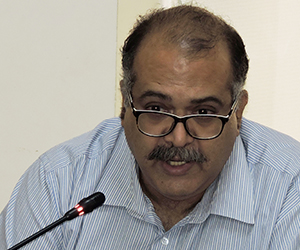



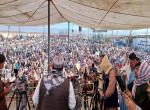
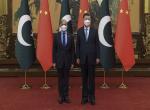
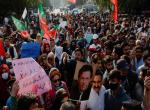
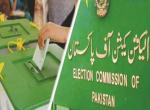
Post new comment